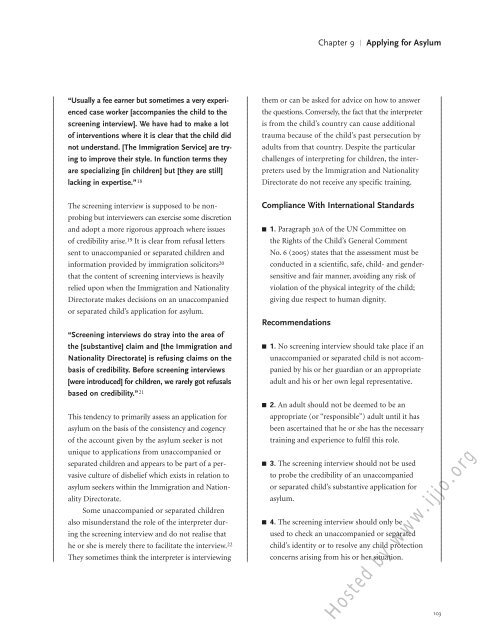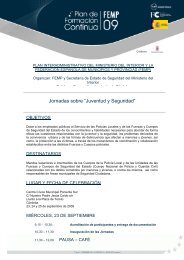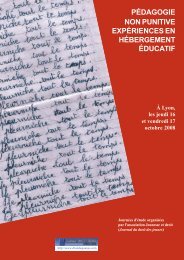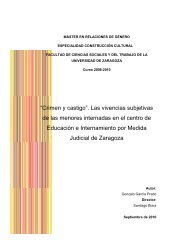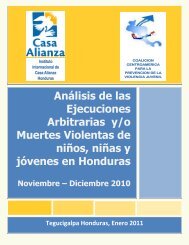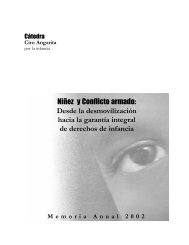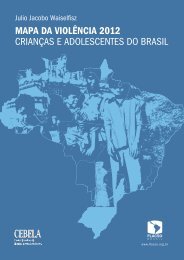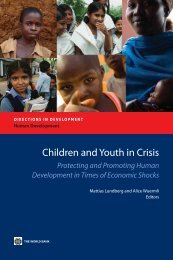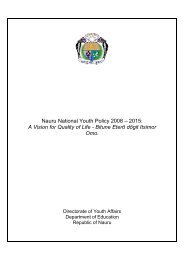Hosted by www.ijjo.org
Hosted by www.ijjo.org
Hosted by www.ijjo.org
You also want an ePaper? Increase the reach of your titles
YUMPU automatically turns print PDFs into web optimized ePapers that Google loves.
Chapter 9 | Applying for Asylum<br />
“Usually a fee earner but sometimes a very experienced<br />
case worker [accompanies the child to the<br />
screening interview]. We have had to make a lot<br />
of interventions where it is clear that the child did<br />
not understand. [The Immigration Service] are trying<br />
to improve their style. In function terms they<br />
are specializing [in children] but [they are still]<br />
lacking in expertise.” 18<br />
them or can be asked for advice on how to answer<br />
the questions. Conversely, the fact that the interpreter<br />
is from the child’s country can cause additional<br />
trauma because of the child’s past persecution <strong>by</strong><br />
adults from that country. Despite the particular<br />
challenges of interpreting for children, the interpreters<br />
used <strong>by</strong> the Immigration and Nationality<br />
Directorate do not receive any specific training.<br />
The screening interview is supposed to be nonprobing<br />
but interviewers can exercise some discretion<br />
and adopt a more rigorous approach where issues<br />
of credibility arise. 19 It is clear from refusal letters<br />
sent to unaccompanied or separated children and<br />
information provided <strong>by</strong> immigration solicitors 20<br />
that the content of screening interviews is heavily<br />
relied upon when the Immigration and Nationality<br />
Directorate makes decisions on an unaccompanied<br />
or separated child’s application for asylum.<br />
“Screening interviews do stray into the area of<br />
the [substantive] claim and [the Immigration and<br />
Nationality Directorate] is refusing claims on the<br />
basis of credibility. Before screening interviews<br />
[were introduced] for children, we rarely got refusals<br />
based on credibility.” 21<br />
This tendency to primarily assess an application for<br />
asylum on the basis of the consistency and cogency<br />
of the account given <strong>by</strong> the asylum seeker is not<br />
unique to applications from unaccompanied or<br />
separated children and appears to be part of a pervasive<br />
culture of disbelief which exists in relation to<br />
asylum seekers within the Immigration and Nationality<br />
Directorate.<br />
Some unaccompanied or separated children<br />
also misunderstand the role of the interpreter during<br />
the screening interview and do not realise that<br />
he or she is merely there to facilitate the interview. 22<br />
They sometimes think the interpreter is interviewing<br />
Compliance With International Standards<br />
■ 1. Paragraph 30A of the UN Committee on<br />
the Rights of the Child’s General Comment<br />
No. 6 (2005) states that the assessment must be<br />
conducted in a scientific, safe, child- and gendersensitive<br />
and fair manner, avoiding any risk of<br />
violation of the physical integrity of the child;<br />
giving due respect to human dignity.<br />
Recommendations<br />
■ 1. No screening interview should take place if an<br />
unaccompanied or separated child is not accompanied<br />
<strong>by</strong> his or her guardian or an appropriate<br />
adult and his or her own legal representative.<br />
■ 2. An adult should not be deemed to be an<br />
appropriate (or “responsible”) adult until it has<br />
been ascertained that he or she has the necessary<br />
training and experience to fulfil this role.<br />
■ 3. The screening interview should not be used<br />
to probe the credibility of an unaccompanied<br />
or separated child’s substantive application for<br />
asylum.<br />
■ 4. The screening interview should only be<br />
used to check an unaccompanied or separated<br />
child’s identity or to resolve any child protection<br />
concerns arising from his or her situation.<br />
<strong>Hosted</strong> <strong>by</strong> <strong>www</strong>.<strong>ijjo</strong>.<strong>org</strong><br />
103


